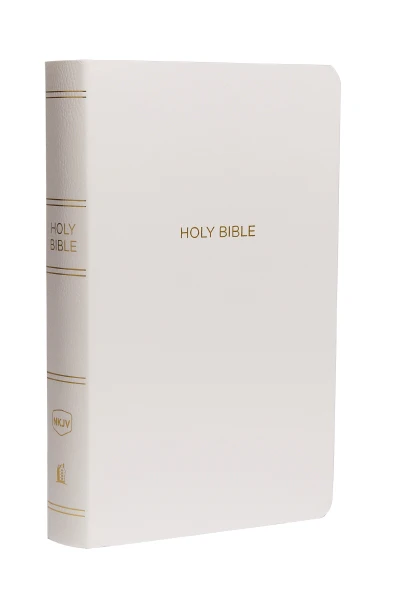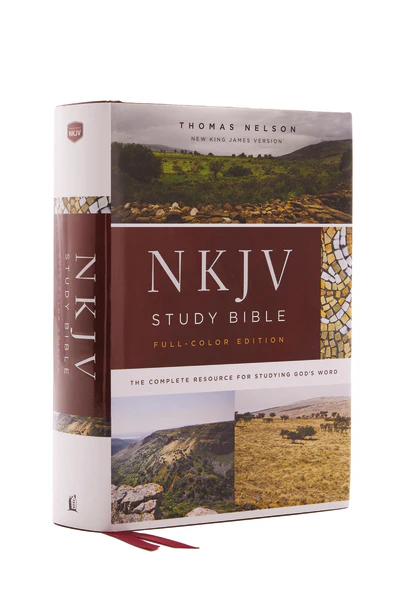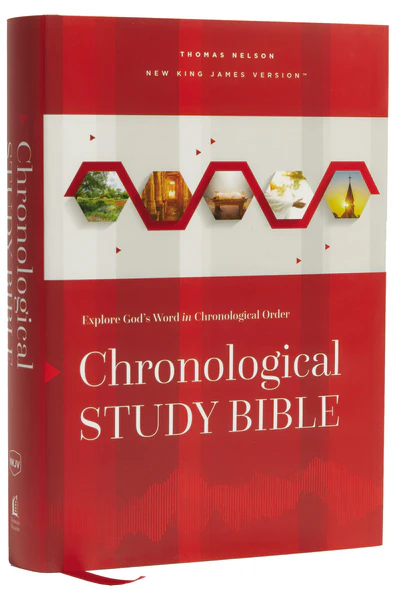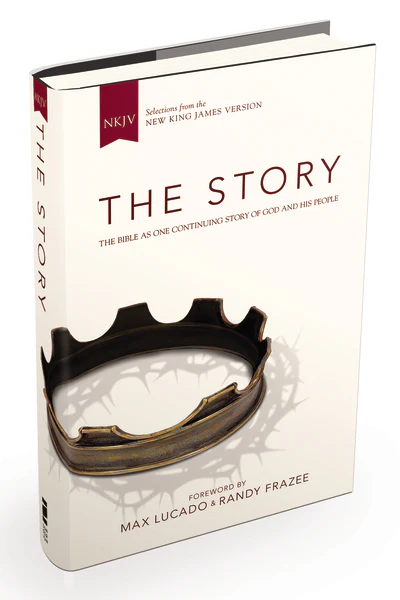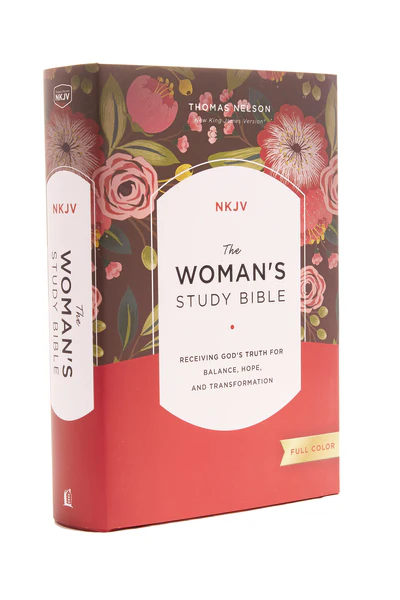Joshua 15-17
New King James Version
The Land of Judah
15 So this was the [a]lot of the tribe of the children of Judah according to their families:
(A)The border of Edom at the (B)Wilderness of Zin southward was the extreme southern boundary. 2 And their (C)southern border began at the shore of the Salt Sea, from the bay that faces southward. 3 Then it went out to the southern side of (D)the Ascent of Akrabbim, passed along to Zin, ascended on the south side of Kadesh Barnea, passed along to Hezron, went up to Adar, and went around to Karkaa. 4 From there it passed (E)toward Azmon and went out to the Brook of Egypt; and the border ended at the sea. This shall be your southern border.
5 The east border was the Salt Sea as far as the mouth of the Jordan.
And the (F)border on the northern quarter began at the bay of the sea at the mouth of the Jordan. 6 The border went up to (G)Beth Hoglah and passed north of Beth Arabah; and the border went up (H)to the stone of Bohan the son of Reuben. 7 Then the border went up toward (I)Debir from (J)the Valley of Achor, and it turned northward toward Gilgal, which is before the Ascent of Adummim, which is on the south side of the valley. The border continued toward the waters of En Shemesh and ended at (K)En Rogel. 8 And the border went up (L)by the Valley of the Son of Hinnom to the southern slope of the (M)Jebusite city (which is Jerusalem). The border went up to the top of the mountain that lies before the Valley of Hinnom westward, which is at the end of the Valley (N)of [b]Rephaim northward. 9 Then the border went around from the top of the hill to (O)the fountain of the water of Nephtoah, and extended to the cities of Mount Ephron. And the border went around (P)to Baalah (which is (Q)Kirjath Jearim). 10 Then the border [c]turned westward from Baalah to Mount Seir, passed along to the side of Mount Jearim on the north (which is Chesalon), went down to Beth Shemesh, and passed on to (R)Timnah. 11 And the border went out to the side of (S)Ekron northward. Then the border went around to Shicron, passed along to Mount Baalah, and extended to Jabneel; and the border ended at the sea.
12 The west border was (T)the coastline of the Great Sea. This is the boundary of the children of Judah all around according to their families.
Caleb Occupies Hebron and Debir(U)
13 (V)Now to Caleb the son of Jephunneh he gave a share among the children of (W)Judah, according to the commandment of the Lord to Joshua, namely, (X)Kirjath Arba, which is Hebron (Arba was the father of Anak). 14 Caleb drove out (Y)the three sons of Anak from there: (Z)Sheshai, Ahiman, and Talmai, the children of Anak. 15 Then (AA)he went up from there to the inhabitants of Debir (formerly the name of Debir was Kirjath Sepher).
16 (AB)And Caleb said, “He who [d]attacks Kirjath Sepher and takes it, to him I will give Achsah my daughter as wife.” 17 So (AC)Othniel the (AD)son of Kenaz, the brother of Caleb, took it; and he gave him (AE)Achsah his daughter as wife. 18 (AF)Now it was so, when she came to him, that she persuaded him to ask her father for a field. So (AG)she dismounted from her donkey, and Caleb said to her, “What do you wish?” 19 She answered, “Give me a (AH)blessing; since you have given me land in the South, give me also springs of water.” So he gave her the upper springs and the lower springs.
The Cities of Judah
20 This was the inheritance of the tribe of the children of Judah according to their families:
21 The cities at the limits of the tribe of the children of Judah, toward the border of Edom in the South, were Kabzeel, (AI)Eder, Jagur, 22 Kinah, Dimonah, Adadah, 23 Kedesh, Hazor, Ithnan, 24 (AJ)Ziph, Telem, Bealoth, 25 Hazor, Hadattah, Kerioth, Hezron (which is Hazor), 26 Amam, Shema, Moladah, 27 Hazar Gaddah, Heshmon, Beth Pelet, 28 Hazar Shual, (AK)Beersheba, Bizjothjah, 29 Baalah, Ijim, Ezem, 30 Eltolad, Chesil, (AL)Hormah, 31 (AM)Ziklag, Madmannah, Sansannah, 32 Lebaoth, Shilhim, Ain, and (AN)Rimmon: all the cities are twenty-nine, with their villages.
33 In the lowland: (AO)Eshtaol, Zorah, Ashnah, 34 Zanoah, En Gannim, Tappuah, Enam, 35 Jarmuth, (AP)Adullam, Socoh, Azekah, 36 Sharaim, Adithaim, Gederah, and Gederothaim: fourteen cities with their villages; 37 Zenan, Hadashah, Migdal Gad, 38 Dilean, Mizpah, (AQ)Joktheel, 39 (AR)Lachish, Bozkath, (AS)Eglon, 40 Cabbon, [e]Lahmas, Kithlish, 41 Gederoth, Beth Dagon, Naamah, and Makkedah: sixteen cities with their villages; 42 (AT)Libnah, Ether, Ashan, 43 Jiphtah, Ashnah, Nezib, 44 Keilah, Achzib, and Mareshah: nine cities with their villages; 45 Ekron, with its towns and villages; 46 from Ekron to the sea, all that lay near (AU)Ashdod, with their villages; 47 Ashdod with its towns and villages, Gaza with its towns and villages—as far as (AV)the Brook of Egypt and (AW)the Great Sea with its coastline.
48 And in the mountain country: Shamir, Jattir, Sochoh, 49 Dannah, Kirjath Sannah (which is Debir), 50 Anab, Eshtemoh, Anim, 51 (AX)Goshen, Holon, and Giloh: eleven cities with their villages; 52 Arab, Dumah, Eshean, 53 Janum, Beth Tappuah, Aphekah, 54 Humtah, (AY)Kirjath Arba (which is Hebron), and Zior: nine cities with their villages; 55 (AZ)Maon, Carmel, Ziph, Juttah, 56 Jezreel, Jokdeam, Zanoah, 57 Kain, Gibeah, and Timnah: ten cities with their villages; 58 Halhul, Beth Zur, Gedor, 59 Maarath, Beth Anoth, and Eltekon: six cities with their villages; 60 (BA)Kirjath Baal (which is Kirjath Jearim) and Rabbah: two cities with their villages.
61 In the wilderness: Beth Arabah, Middin, Secacah, 62 Nibshan, the City of Salt, and (BB)En Gedi: six cities with their villages.
63 As for the Jebusites, the inhabitants of Jerusalem, (BC)the children of Judah could not drive them out; (BD)but the Jebusites dwell with the children of Judah at Jerusalem to this day.
Ephraim and West Manasseh
16 The lot [f]fell to the children of Joseph from the Jordan, by Jericho, to the waters of Jericho on the east, to the (BE)wilderness that goes up from Jericho through the mountains to [g]Bethel, 2 then went out [h]from (BF)Bethel to Luz, passed along to the border of the Archites at Ataroth, 3 and went down westward to the boundary of the Japhletites, (BG)as far as the boundary of Lower Beth Horon to (BH)Gezer; and [i]it ended at the sea.
4 (BI)So the children of Joseph, Manasseh and Ephraim, took their [j]inheritance.
The Land of Ephraim
5 (BJ)The border of the children of Ephraim, according to their families, was thus: The border of their inheritance on the east side was (BK)Ataroth Addar (BL)as far as Upper Beth Horon.
6 And the border went out toward the sea on the north side of (BM)Michmethath; then the border went around eastward to Taanath Shiloh, and passed by it on the east of Janohah. 7 Then it went down from Janohah to Ataroth and [k]Naarah, reached to Jericho, and came out at the Jordan.
8 The border went out from (BN)Tappuah westward to the (BO)Brook Kanah, and [l]it ended at the sea. This was the inheritance of the tribe of the children of Ephraim according to their families. 9 (BP)The separate cities for the children of Ephraim were among the inheritance of the children of Manasseh, all the cities with their villages.
10 (BQ)And they did not drive out the Canaanites who dwelt in Gezer; but the Canaanites dwell among the Ephraimites to this day and have become forced laborers.
The Other Half-Tribe of Manasseh (West)
17 There was also a lot for the tribe of Manasseh, for he was the (BR)firstborn of Joseph: namely for (BS)Machir the firstborn of Manasseh, the father of Gilead, because he was a man of war; therefore he was given (BT)Gilead and Bashan. 2 And there was a lot for (BU)the rest of the children of Manasseh according to their families: (BV)for the children of [m]Abiezer, the children of Helek, (BW)the children of Asriel, the children of Shechem, (BX)the children of Hepher, and the children of Shemida; these were the male children of Manasseh the son of Joseph according to their families.
3 But (BY)Zelophehad the son of Hepher, the son of Gilead, the son of Machir, the son of Manasseh, had no sons, but only daughters. And these are the names of his daughters: Mahlah, Noah, Hoglah, Milcah, and Tirzah. 4 And they came near before (BZ)Eleazar the priest, before Joshua the son of Nun, and before the rulers, saying, (CA)“The Lord commanded Moses to give us an [n]inheritance among our brothers.” Therefore, according to the commandment of the Lord, he gave them an inheritance among their father’s brothers. 5 Ten shares fell to (CB)Manasseh, besides the land of Gilead and Bashan, which were on the other side of the Jordan, 6 because the daughters of Manasseh received an inheritance among his sons; and the rest of Manasseh’s sons had the land of Gilead.
7 And the territory of Manasseh was from Asher to (CC)Michmethath, that lies east of Shechem; and the border went along south to the inhabitants of En Tappuah. 8 Manasseh had the land of Tappuah, but (CD)Tappuah on the border of Manasseh belonged to the children of Ephraim. 9 And the [o]border descended to the [p]Brook Kanah, southward to the brook. (CE)These cities of Ephraim are among the cities of Manasseh. The border of Manasseh was on the north side of the brook; and it ended at the sea.
10 Southward it was Ephraim’s, northward it was Manasseh’s, and the sea was its border. Manasseh’s territory was adjoining Asher on the north and Issachar on the east. 11 And in Issachar and in Asher, (CF)Manasseh had (CG)Beth Shean and its towns, Ibleam and its towns, the inhabitants of Dor and its towns, the inhabitants of En Dor and its towns, the inhabitants of Taanach and its towns, and the inhabitants of Megiddo and its towns—three hilly regions. 12 Yet (CH)the children of Manasseh could not drive out the inhabitants of those cities, but the Canaanites were determined to dwell in that land. 13 And it happened, when the children of Israel grew strong, that they put the Canaanites to (CI)forced labor, but did not utterly drive them out.
More Land for Ephraim and Manasseh
14 (CJ)Then the children of Joseph spoke to Joshua, saying, “Why have you given us only (CK)one [q]lot and one share to inherit, since we are (CL)a great people, inasmuch as the Lord has blessed us until now?”
15 So Joshua answered them, “If you are a great people, then go up to the forest country and clear a place for yourself there in the land of the Perizzites and the giants, since the mountains of Ephraim are too confined for you.”
16 But the children of Joseph said, “The mountain country is not enough for us; and all the Canaanites who dwell in the land of the valley have (CM)chariots of iron, both those who are of Beth Shean and its towns and those who are (CN)of the Valley of Jezreel.”
17 And Joshua spoke to the house of Joseph—to Ephraim and Manasseh—saying, “You are a great people and have great power; you shall not have only one [r]lot, 18 but the mountain country shall be yours. Although it is wooded, you shall cut it down, and its [s]farthest extent shall be yours; for you shall drive out the Canaanites, (CO)though they have iron chariots and are strong.”
Footnotes
- Joshua 15:1 allotment
- Joshua 15:8 Lit. Giants
- Joshua 15:10 turned around
- Joshua 15:16 Lit. strikes
- Joshua 15:40 Or Lahmam
- Joshua 16:1 Lit. went out
- Joshua 16:1 LXX Bethel Luz
- Joshua 16:2 LXX to Bethel,
- Joshua 16:3 Lit. the goings out of it were at the sea
- Joshua 16:4 possession
- Joshua 16:7 Naaran, 1 Chr. 7:28
- Joshua 16:8 Lit. the goings out of it were at the sea
- Joshua 17:2 Jeezer, Num. 26:30
- Joshua 17:4 possession
- Joshua 17:9 boundary
- Joshua 17:9 Wadi
- Joshua 17:14 allotment
- Joshua 17:17 allotment
- Joshua 17:18 Lit. goings out
1 Corinthians 8
New King James Version
Be Sensitive to Conscience
8 Now (A)concerning things offered to idols: We know that we all have (B)knowledge. (C)Knowledge [a]puffs up, but love [b]edifies. 2 And (D)if anyone thinks that he knows anything, he knows nothing yet as he ought to know. 3 But if anyone loves God, this one is known by Him.
4 Therefore concerning the eating of things offered to idols, we know that (E)an idol is nothing in the world, (F)and that there is no other God but one. 5 For even if there are (G)so-called gods, whether in heaven or on earth (as there are many gods and many lords), 6 yet (H)for us there is one God, the Father, (I)of whom are all things, and we for Him; and (J)one Lord Jesus Christ, (K)through whom are all things, and (L)through whom we live.
7 However, there is not in everyone that knowledge; for some, (M)with consciousness of the idol, until now eat it as a thing offered to an idol; and their conscience, being weak, is (N)defiled. 8 But (O)food does not commend us to God; for neither if we eat are we the better, nor if we do not eat are we the worse.
9 But (P)beware lest somehow this liberty of yours become (Q)a [c]stumbling block to those who are weak. 10 For if anyone sees you who have knowledge eating in an idol’s temple, will not (R)the conscience of him who is weak be emboldened to eat those things offered to idols? 11 And (S)because of your knowledge shall the weak brother perish, for whom Christ died? 12 But (T)when you thus sin against the brethren, and wound their weak conscience, you sin against Christ. 13 Therefore, (U)if food makes my brother stumble, I will never again eat meat, lest I make my brother stumble.
Footnotes
- 1 Corinthians 8:1 makes arrogant
- 1 Corinthians 8:1 builds up
- 1 Corinthians 8:9 cause of offense
Scripture taken from the New King James Version®. Copyright © 1982 by Thomas Nelson. Used by permission. All rights reserved.
Bible Gateway Recommends
